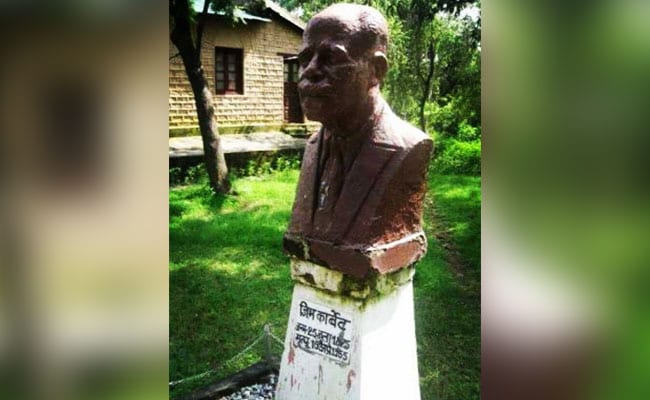This grim prophesy made by hunter, naturalist and conservationist Jim Corbett in the mid-20th century nearly proved correct some years ago when a well-known tiger reserve in north India was declared "tiger-less" and the total number of tigers in India ominously dwindled below 1,500.
Today, the state of wildlife and environment continues to be a matter of concern and the words of Jim Corbett echo far more urgently. The anthropological thread which runs through his tales is an inspiration not only for environmentalists and wildlife conservationists, but also for any writer who wants to understand life in the Himalayas and rediscover Jim Corbett after 60 years of his death.
On July 25, we celebrate the 142nd birth anniversary of Jim Corbett.
What made him such an entertaining and adorable writer is his simple and lucid language, humour, sensitivity and love for the hill folks. He had killed more than a dozen man-eaters, who mauled villagers and ate their livestock, yet Jim Corbett had great respect for the beast that he stalked.

Jim Corbett's house which has been converted into a museum
Jim Corbett was strongly against defining the tiger as "bloodthirsty" or "cruel", and he termed the use of such phrase as "lamentable ignorance" of the person who described tiger this way.
His book 'Man-Eaters of Kumaon' has attained the status of a classic, and his respect for the carnivore gave a distinguishing feature to his writings. He was often assigned the most difficult and life-threatening tasks when other sportspersons failed to kill the man-eater, as hill folks also urgently needed it to be killed.
Nonetheless, Jim Corbett neither claimed any monetary award from the government nor demanded any special facilities while executing his jungle missions. It was because he was against any price tag on the animal's life. He did not even make it a prestige issue to win a battle against a beast.
On the contrary, in his famous story 'The Temple Tiger', he puts it on record that he couldn't kill this man-eater who was active in Dabidhura area of Uttrakhand and who he stalked for many days. He ends the story with these lines - "Next day I bade farewell to all my friends in Dabidhura and assured them I would return when the man-eater got active again..."

Jim Corbett never made it a prestige issue to win a battle against a beast
He exhorts the reader to "pause for a moment and try to define the difference...". He tells us the story of his aide Bala Singh, who believes that "a demon" had entered his body through his mouth. We come to know the sympathy of magnanimity of Jim Corbett as the story progresses, though Bala Singh succumbs to his superstitions.
Jim Corbett knew and lived the hardship of people in the hills and his writings abundantly reflect this. One example of remarkable sensitivity is seen in one of the very popular stories called 'The Muktesar Man-Eater'. While chasing the man-eater who had terrorised the locals, he found a young girl of merely eight years old in the jungle. This girl was taking a bullock to her uncle because his bullock was killed by the tiger.
Jim Corbett was surprised how a little girl had the courage to walk alone in this territory knowing fully well that a man-eater was operating in that area. He walked with the girl to her home safely before resuming his task to hunt the tigress. At the end of the story after getting rid of the man-eater, he expresses his satisfaction for "...having made a small portion of the earth safe for a brave little girl to walk on."
Jim Corbett authored six books in all, and there are several such stories which show his concern and empathy for nature and the people who live in the mountains. Jim Corbett's bond with Indians, however, wasn't limited to the Himalayas. He spent almost two decades as a fuel inspector in Mokame Ghat in Bihar, and his book 'My India' has some really heart-touching stories.
One such tale is about a Dalit man, Chamari, and his wife. Though in dire need of work, Chamari and his wife were unable to take any strenuous work as they were both weak. It is heartening to know how Jim Corbett employed Chamari as an accountant with him.
The poor Dalit not only executed the task of counting the coal wagons and wages of labours most accurately and honestly, but also commanded respect from the men who were socially above him.
"...during the twenty years he worked for me the correctness of his accounts was never disputed," writes Jim Corbett in 'My India'.
Unfortunately, though 60 years after Jim Corbett's death, neither the forests nor the Paharis whom he loved so much are in good shape. Jim Corbett's village Kaladhungi, also known as Choti Haldwani, near Nainital is a fast-sprawling concrete jungle and the upper hills of Uttarakhand are turning ghost villages as people continuously migrate for jobs.
Forests are either burning or vanishing. The glaciers are melting and once vibrant rivers are succumbing under tremendous pressure. There is no man-eater left in the jungles of Kumaon, but man himself has become a predator to nature and humanity in these hills.
(Hridayesh Joshi is Senior Editor, National Affairs of NDTV India.)
Disclaimer: The opinions expressed within this article are the personal opinions of the author. The facts and opinions appearing in the article do not reflect the views of NDTV and NDTV does not assume any responsibility or liability for the same.


